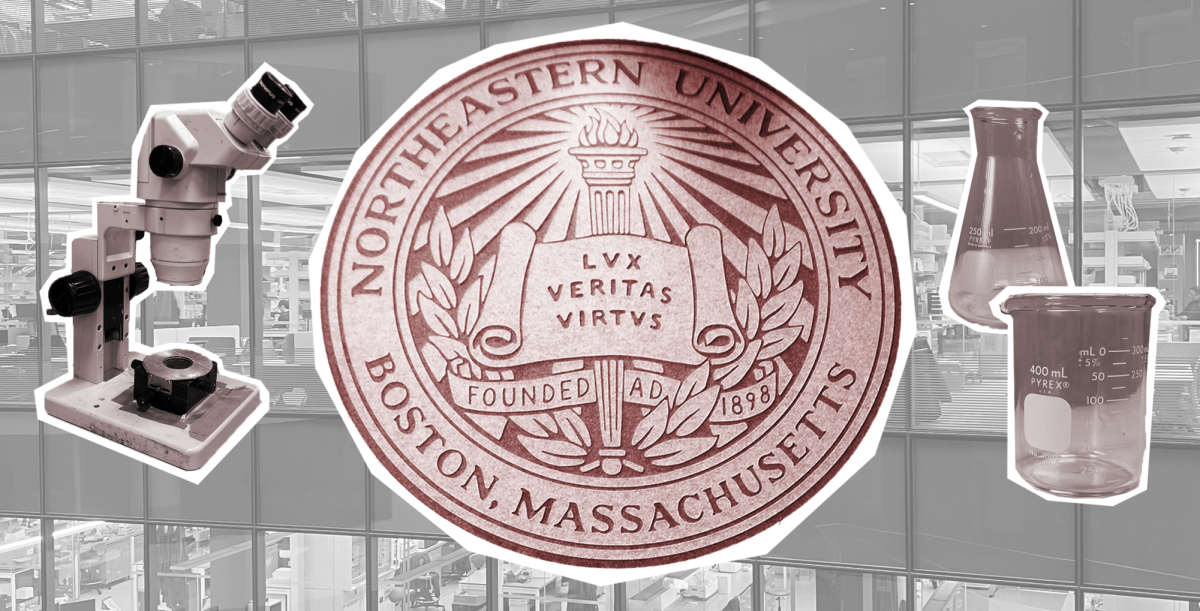Following Northeastern’s removal of nearly all diversity, equity and inclusion, or DEI, messaging from its websites and social media platforms Jan. 29, postdoctoral teaching associate Griffin Zimmerman sent a Canvas message to students in all four of his writing courses. Zimmerman told them he was cancelling class the next day to work on restructuring the curriculum, which focuses on DEI and disability-related readings.
After a student posted Zimmerman’s message online, Northeastern administrators called a meeting with the English professor, asking him to remove the message from Canvas. According to Zimmerman, the administrators told his supervisor that it was not the university’s intention to prevent faculty from teaching their classes as planned.
“I didn’t want to give an opportunity for the university to become a target because my classroom was continuing a focus that the university needed to have rebranded,” said Zimmerman, who is transgender and advocates for the inclusion of marginalized students.
Zimmerman and other Northeastern professors have been left in a state of confusion over what coursework and research can continue in the wake of President Donald Trump’s slew of executive orders that have axed DEI research and programs on a federal level. Northeastern was among the first higher education institutions to respond by instructing faculty Jan. 29 to report whether research funded by the National Science Foundation involved DEI principles and state that they have ceased any such research. The email was sent after over 430 faculty attended a tense faculty senate meeting, which was dominated by conversations about threats to federal research funds and the future of DEI.
A College of Social Sciences and Humanities, or CSSH, faculty member, who spoke with The Huntington News on the condition of anonymity, said they have seen their colleagues struggle to make sense of Northeastern’s vague instructions regarding scrapping research that touches on DEIA-related topics.
“I think there’s a lot of frustration with how our administration is struggling to answer how vague the language of the [executive order] is,” they said. “A lot of faculty are asking, ‘My research is about this. Should I keep doing it?’ and the administration does not seem able to give a straight answer.”
The faculty member shared an email with The News from CSSH Dean Kellee Tsai that was sent to CSSH faculty and staff Jan. 31, in which Tsai affirmed her personal vision for CSSH to move forward with its work despite what the central administration may be advising.
“The recent flurry of Executive Orders and ensuing confusion over their implications for our work and lives has been unsettling, to put it mildly,” Tsai wrote. “CSSH faculty must exercise their academic freedom to teach and do research on any topic, using the words that they find most appropriate.”
In its “Navigating a New Political Landscape” FAQ, published Jan. 31, the university says it “does not impose limitations upon the freedom of faculty members in the exposition of the subjects they teach.”
In response to a question about what faculty and staff should do considering the changing policies regarding federally funded research, the university instructed research to continue as planned.
“As recent news shows, this is a fluid situation that we are monitoring carefully,” the FAQ’s “Research and Teaching“ section reads. “We will evaluate any forthcoming executive orders or pauses if they happen and provide updated guidance when necessary.”
Northeastern is an R1 research institution, a prestigious title that is awarded by the Carnegie Classification of Institutions of Higher Education to select universities across the country. To qualify, a university must spend at least $50 million on research and development and produce at least 70 research doctorates per year. But researchers using federal grants may be subject to cuts due to the National Science Foundation’s new policy of flagging keywords and halting research with mentions of terms including “trauma,” “barriers,” “equity” and “excluded,” according to an internal document reviewed by The Washington Post.
“One of the big things that’s really scary about this if you’re a researcher is that your work could go away if you have a buzzword in one of your abstracts,” said Emery Jacobowitz, a fourth-year computer science and linguistics combined major. “It’s scary to know that your livelihood is now unpredictable.”
Other students feel Northeastern acted too fast in stripping away its DEI policies when it ultimately may not be mandated by the government.
“Northeastern was alarmingly quick to bend to compliance and immediately overhaul their DEI language, and it’s not necessary,” said Adina Gitomer, a fifth-year PhD student in the Network Science Institute run out of CSSH. “I feel like they could’ve stuck their neck out a little more.”
Johan Bonilla Castro, an assistant professor of physics who is nonbinary and Latinx, was hired by Northeastern in January 2024. Since they began, they said they have felt the university’s support for their identity lessen.
Bonilla Castro conducts research concerning high energy particle physics, but says that a focal point of their work involves bringing their identity into physics to push for increased diversity in a historically white and male-dominated field.
“At the center of all of my work is my identity and my experiences, and I can’t just take those away. I can’t just rebrand that,” they said.
When the university took down its DEI webpages, Bonilla Castro and their colleagues in the department of physics spoke about how to reassure students that their identities were supported. They said the group asked their department chair if they could send out a mass email. According to Bonilla Castro, after their department chair consulted the college’s higher-ups, the answer was no.
Bonilla Castro and Toyoko Orimoto, another department of physics professor, sent an email of support on Jan. 31 anyway, which included an apology on behalf of how students and fellow staff may have been “hurting in so many different ways” by the rapidly changing policies coming out of the White House, and offering unconditional support from the physics community.
“If I were to have sent out the contents of that email a year ago, it would not have been a problem,” Bonilla Castro said. “Clearly, there are some differences in policy that aren’t actually on paper and aren’t being communicated.”
Students and faculty who spoke with The News said that the university has understandably remained in a gray area with its policies to avoid federal repercussions, but its actions have had damaging effects on the community.
“From the management perspective, the university is doing a great job,” Bonilla Castro said. “But people are scared. The communications are being controlled, so how do we actually communicate with each other when we’re specifically told not to?”
As Northeastern students and faculty continue to adjust to the changing landscape, it’s unclear what policies will stick.
“It’s an unprecedented world and I want to respect the fear people are experiencing because the university is preemptively making changes that we don’t know if it’s going to shake out that they’re necessary,” Zimmerman said.
Moving forward, Bonilla Castro said they expect their National Science Foundation-funded projects to be halted, but they will not bow to the pressures of the Trump administration or the university to scrub their identity from their work.
“I want to love this university. I’ve been here for a year and would love to be here longer, but it seems that a lot of the stuff that was good for me and my profile is now really bad and I’m being told I need to just do research, shut up and fall in line,” they said. “That’s the way I’ve been made to feel and the way that a lot of my colleagues feel.”












